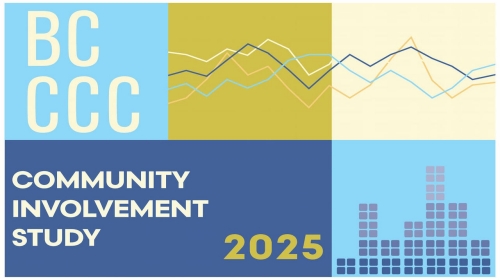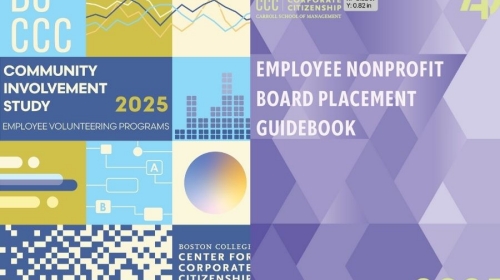WEBINAR: This webinar explores how to measure and communicate your organization's social impact with proven frameworks and strategies that matter to stakeholders.
Bold steps toward climate resiliency

This is an excerpt from our recent report TCFD: A Beginner’s Guide, which is available to members. If you’re not a member and you’re interested in receiving more research-driven insights and practical tools for corporate citizenship professionals, inquire about our corporate membership.
Last month, the United Kingdom mandated that companies must report the financial impacts of climate change on their businesses by 2025, using the Task Force on Climate-related Financial Disclosures, or TCFD. While the U.K. is the first country to make these disclosures mandatory, the regulatory move could be a sign of more global sustainability reporting trends to come.
For TCFD reporter Verizon, trust is all about transparency. When the company’s investors identified climate-related disclosures as an area of interest, Verizon set out to place its climate goals in a strategic context using TCFD-aligned reporting. The company released its inaugural TCFD report on April 22, 2020, on the 50th anniversary of Earth Day. Verizon’s TCFD report is structured around the four thematic areas for TCFD disclosures: governance, strategy, risk management, and metrics and targets.
Using the TCFD recommendations not only helped Verizon place its existing climate goals in a strategic context, but also helped the company develop the climate-related disclosures that its major institutional and socially responsible investors requested. Prior to implementing the TCFD recommendations, Verizon had already set specific climate goals, including an ambitious goal to become carbon neutral in its operations by 2035 and for 50% of its total annual electricity consumption to be backed by renewable energy by 2025. TCFD-aligned reporting helped Verizon place these goals in a strategic context by connecting them to long-term business strategies.
As 5G brings about the Fourth Industrial Revolution, Verizon believes that mobility, broadband, and cloud have the ability to solve pressing global societal challenges. The company’s environmental strategy takes full advantage of these new possibilities. Verizon is striving to minimize the impact of the company’s operations, improve the energy efficiency of its networks, upgrade and harden infrastructure in preparation for climate change impacts, and develop solutions that allow its customers to minimize their environmental footprint and transition to a low-carbon economy. Through a customer-centric business model, Verizon remains committed to applying its technologies to help build a better, more responsible future.
To fund the initiatives that will propel Verizon toward carbon neutrality, the company launched a $1 billion green bond in 2019—the first to be issued by a telecommunications company in the U.S. In September of this year, Verizon announced its second green bond following the completion of the allocation of the first green bond, solidifying the company’s position as a telecommunications industry leader in green finance. Verizon expects to use the net proceeds of its second $1 billion offering primarily for long-term renewable energy purchase agreements that support the construction of solar and wind facilities that will bring new renewable energy to the grids that power its networks.
Committed to creating the networks that move the world forward, Verizon believes in taking responsibility for a shared future. “We understand that climate risk is business risk, and we are taking bold steps to make our networks more climate resilient and to minimize our environmental footprint,” says Verizon CEO Hans Vestberg. TCFD reporting enables Verizon to communicate the importance of climate protection to its investors and other stakeholders by connecting its environmental goals to its long-term business strategy.
Looking to get started on reporting climate change impacts using TCFD?
Download our new report, generously sponsored by State Street:
TCFD: A Beginner's Guide (full report, members only)
Executive Summary (free for everyone)
If you’re not a member and you’re interested in receiving more research-driven insights and practical tools for corporate citizenship professionals, inquire about our corporate membership.
Related Content
RESEARCH BRIEF - Researchers investigated how ESG activities help or hurt financial performance, using nine years of data from over 1,200 global companies.
RESEARCH BRIEF - Researchers analyzed 4 US energy exchange-traded funds (ETFs) over 15 years, including 2 dirty energy funds tracking fossil fuel companies and 2 clean energy funds tracking renewable energy companies.
RESEARCH BRIEF - Researchers conducted a survey, which measured perceptions of CSR and ethical leadership within the manufacturing and service industries.
WEBINAR: This webinar explores how corporate giving will be reshaped by the One Big Beautiful Bill. Hear directly from corporate citizenship leaders as they share innovative, real-world strategies that deliver impact for communities and results for business.
This study explores shifting trends in employee volunteering, corporate giving, and other means of corporate community involvement.
This guidebook offers insights on placing employees in nonprofit board service roles.
This study explores shifting trends in employee volunteering, corporate giving, and other means of corporate community involvement.








